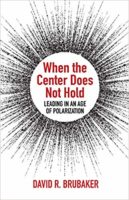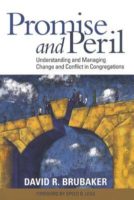
Christian Nationalism is a significant force in American civic life, yet “Christianity” and “Christian Nationalism” are two very different species. The former is a religious movement and the latter is a political one. Yet because many Christians (almost all of them white) have imbibed the tenets of Christian Nationalism, Christian leaders must contend with its presence.
When Vice President Mike Pence spoke at the Republican National Convention at the end of August, he paraphrased a verse from the Christian Scriptures, “Let us fix our eyes on Jesus” (Hebrews 12:2). However, Mr. Pence said, “Let us fix our eyes on Old Glory and all she represents.” Although he later referenced the “author and perfecter of our faith and our freedom,” his initial paraphrase attracted much more attention.
This blending of faith and freedom has become the hallmark of Christian Nationalism, “an ideology that idealizes and advocates a fusion of American civic life with a particular type of Christian identity and culture” (p. x). According to Andrew Whitehead and Samuel Perry in Taking America Back for God, the core tenets of Christian Nationalism are power, control, and order. These core principles are expressed in valuing “native born” over “foreign born” Americans, seeing a necessary hierarchy between men and women, and seeking “to preserve white supremacy” (p. 106).
Christian Nationalism and evangelicalism
Due to widespread reporting on the support of white evangelicals for President Trump and his policies, many have conflated white evangelicalism with Christian Nationalism. Yet while Christian Nationalism has infused many aspects of white evangelicalism, “Christian Nationalism should not be thought of as synonymous with…white evangelicalism” (p. 20). According to Whitehead and Perry, Christian Nationalism is more a political movement than a religious one, a “political ideology dressed up as religious orthodoxy” (p. 21). Nor is Christian Nationalism confined to only the Christian tradition, as individuals of other religions and even no religion have embraced its premises.
In fact, Christian Nationalism and religious practices (such as attending worship, prayer, and Bible study) tend to move in opposite directions. If we exclude those with a commitment to Christian Nationalism, “Americans who are more religious are actually less likely to vote for Trump, less likely to ostracize immigrants, less likely to espouse anti-black prejudice or fear Muslims” (p. 143). At the same time, Christian Nationalism and personal religiosity do both predict “more conservative attitudes towards sexuality, gender, and divorce” (p. 143).
Understanding white evangelicals
Whitehead and Perry’s prodigious research presents a more nuanced understanding of the white evangelicals who voted overwhelmingly for Donald Trump in 2016 (and are likely to do so again this November). Christian Nationalism has significantly influenced this demographic, group, but white evangelicals are by no means monolithic. Many white evangelicals (especially younger ones) are active in movements to welcome refugees and advocate for creation care, and they cite their faith as the motivation for doing so.
Yet in any predominantly white congregation of any size and nearly any denomination, we are likely to find some adherents of Christian Nationalism. (As they comprise nearly 30% of the broader American population.) How are congregational leaders to respond to their presence and demands? Here are three suggestions.
1. Show respect for our country, its leaders, and its rituals and artifacts.
Christian Nationalists possess a genuine reverence for the flag, the Constitution, military service, and other important aspects of American life. Congregational leaders would do well to show respect for all of these as well. This does not necessarily mean turning your July 4th worship service into a red, white, and blue extravaganza…but it does imply demonstrating respect for what Christian Nationalists value.
2. Stress where our ultimate loyalties should lie.
Christian Nationalism turns religious faith into a worship of “God and Country” rather than God alone. In contrast, we can remind adherents of the first commandment—that worship and fidelity are due only to God. Christian Nationalists tend to conflate the two (God and Country), so leaders should expect some resistance to this principle.
3. Encourage a universal faith rather than a nationalistic one.
Here Roman Catholics possess an intrinsic advantage, as adherents receive regular reminders of the universal nature of their movement. Nevertheless, congregations of other traditions can encourage the same awareness. My own congregation prays for a different country of the world every week, taking some four years to move through the entire roster. Developing a “sibling congregation” relationship with a congregation of your own tradition in another part of the world also spawns broader awareness. Recognizing that God is bigger than any one country (or people group) is an essential step in breaking out of Christian Nationalism.
Christian Nationalism is pervasive and pernicious. It appeals to our most tribal instincts, convincing us that we are “a chosen race”…and thus denying the universal nature of God’s love. Nevertheless, since it is a political movement and not a religious one, it can be resisted with the core teachings of our religious traditions. While we must respect the traditions and values of the country in which we are privileged to live, our religious beliefs call us to a transcendent allegiance.
During this election season, politicians of both parties will again wrap themselves in the American flag and speak of their commitment to their faith. While we understand their need to do so, we must also remember the important distinction between our faith (church) and our government (state).
David Brubaker has consulted with organizations and congregations in the U.S. and a dozen other countries on organizational development and conflict transformation. He is the author of Promise and Peril, on managing change and conflict in congregations, and When the Center Does Not Hold, on leading in an age of polarization. David serves as Dean of the School of Social Sciences and Professions at Eastern Mennonite University and is a professor of organizational studies.


